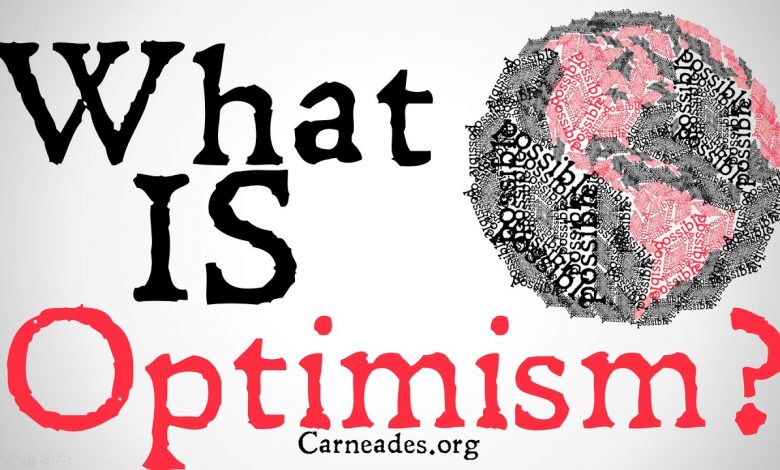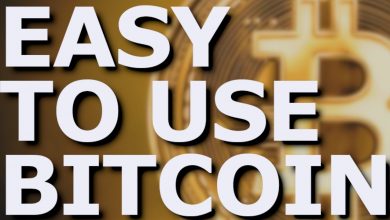What is Optimism? (Philosophical Definitions)

A definition of Leibniz’s philosophical optimism, or the belief that we are in the best of all possible worlds. Stay tuned for a video on philosophical pessimism.
Sponsors: João Costa Neto, Dakota Jones, Thorin Isaiah Malmgren, Prince Otchere, Mike Samuel, Daniel Helland, Mohammad Azmi Banibaker, Dennis Sexton, kdkdk, Yu Saburi, Mauricino Andrade, Diéssica, Will Roberts, Greg Gauthier, Christian Bay, Joao Sa, Richard Seaton, Edward Jacobson, isenshi, and √2. Thanks for your support!
Donate on Patreon: https://www.patreon.com/Carneades
Buy stuff with Zazzle: http://www.zazzle.com/carneades
Follow us on Twitter: @CarneadesCyrene https://twitter.com/CarneadesCyrene
Information for this video gathered from The Stanford Encyclopedia of Philosophy, The Internet Encyclopedia of Philosophy, The Cambridge Dictionary of Philosophy, The Oxford Dictionary of Philosophy and more! (#Optimism #Leibniz)
source






Optimism it true from Eastern?
It's all in how much control we can exsert in our environment that determines if we should hold an optimistic attitude or not. Generally when we have no control, which rarely is the case, it is fair to assume that the outcome couldn't possibly be any better. Example: The movement of the moon effecting the ebb and tide of the seas. Precautions can be taken so that floods won't destroy more cities than they otherwise would, like erecting dams, lessening the impact of climate change etc., but it seems that the persistence of the natural forces themselves cannot be brought under control. Optimism is about believing that the things we have identified to have no control over don't determine our ultimate fate. The important part is finding out how much control we are able to exsert on any given problem, if we can take full control over it then idealist perfectionism is a far more useful approach in facilitating healing towards our world that by theists is believed to be flawed by design.
This entire argument is futile. Logically speaking you cannot tell me how the universe began.
On top of this people are so scared of optimism existing to the point they lable it as some delusional, mental disorder while the forget that pessimism is considered depression disorder. Depression is giving up and weighs you down while delusional makes you create an alternative. People treat depression will pills that make the alternative to your sad mind keep going. You do not know if this medicine will help this pessimistic person but you still give the pills to give them a shot at life before they end it without a future. So mean while you are saying delusional how everyone else keeps going. So for what ever the reason you think optimism cannot be a philosophy… give up on your hopes and dreams to go to college or get a for. Just sit and dwell because there is nothing else to do. People were born to die and in the mean time we live. Babies where abandoned by parents who didn't care in the first place and people who cannot have children adopt them and give them a better life. Is being a abandon really that evil? It was for the better. Not everyone is good and maybe everyone is evil. But that is just a path you have chosen. If you didn't have opmtisim you would have no bridge to cross. It was said some time there the gutter made by an earth quake and pessimism said we must accept this a tragedy and climb down walk through muck, climb out because couldn't be made because a material didn't exist. But an optimistim made the bridge in a different layout with less of the same material. As you walk on the delusional bridge that is real now because of optimism, you should just not cross because it is not real because permission said it wouldnt. This world is fallen but I don't have to fall with it because I am optimism. I make bridges and build from the rubble. I create my delusional aspects you gave up on. And if you need more proof look around you. You are sitting on a coach becuase someone thought it would be more comfortable than sitting on the floor. If you don't have a couch you can still sit down. The majority of this world is pessimistic without philosophy or with it… but optimistim created everything you have and love. I can feel sorry for you but I wouldn't of typed this all out for you if I didn't have faith in this world. It is my choice to be happy and optimistic, it was my choice to take this time to teach this world what it means to exist and how much more you can be. Unless you want to be considered a waist of time, but if you read this far, it's up to you to think otherwise. I will leave it at that. After all in the end, it's up to you what path you should take. Optimism made opitions. Even if you deny that becuase pessimism is all that exists, at least I tried and canceled out a regret it would if I didn't type this out. It is nice to be worth the effort, but if not for optimism, you were just a waste of time. But I know it was better than doing nothing being what would be the point of you sharing this with us. I have faith in humanity even if nothing happens. It's up to you from here on out.
Optimism is probably the most complex philosophy. Ask yourself, if pessimism exists the that means optimism does too. It is basically a philosophy that acknowledges pessimism but doesn't allow that to be real because it doesn't have to be. Philosophies do not justify evil, they do not finalize aspects like science. Philosophy opposes science. Optimism scares people away. People do need to be scared, that's the choice. It basically is reasoning that skips the need to analyze all the others. People don't want to admit that there is more to what it seems. It's not evil because it doesn't have to be. It gives events reason and purpose, the lesson to be learned. There is nothing wrong with pessimism being a philosophy, then there is nothing wrong with being optimistic. If anything the religion aspects you mentioned could fall under pessimism, in Christianity evil is a temptation not the final result. In Buddhism, the world is balanced because optimism exists. Pessimism is accepting evil while optimism acknowledges it. A reason to fear is an opportunity to be brave. Giving pain purpose. The good in the bad. The will to do better. The will and drive to over come. If there is darkness but there can be light. It's basically the philosophy of all philosophies. The glass does not have to be, half empty or half full for the glass to have meaning. Optimism, says the glass is half empty for more room to be filled and the empty glass is not shattered so it exists to be filled. And if the glass is shattered now it means it can be turned into something else of your own. To not let loss go in vain. To live on for your fellow soldiers. You survived for a reason and to make their dreams come true before it's your turn to end. If a philosophy is simply questioning the unknown, and optimism is unreal, your philosophy exists for the sake optimism simply because it can. People were scared to admit this. Nothing is as it seems.
Every single atheist: half of this video is pointless and doesn’t make any sense
You assume physicalism here, a Dualist does not have the problem of breaking the Laws of Physics, because the mind directs the brain, as you find in Descartes, so the mind and the brain affect eachother in various ways, the mind sends signals to the brain which sends them in the muscles as they move, whereas the mind gets information that the brain has stocked, you are quick to call his defense ridiculous but that comes off from your asumption of physicalism in Philosophy of Mind, whereas dualism is a viable position.
W
W
Great video man
This world truly is the best world because it has the potential of getting better and better.
I wish things had gone differently, I wish I would have done things differently.
Optimism is a luxury, whereas the vast majority are relegated to enduring.
In order for our species to sustain a positive outlook, humans must inherently ignore the vast number of atrocities occurring on every corner of this planet. Nearly all of which is directly attributable to our influence.
Pushing aside these aspects of life leads to apathy.
Covid-19 is creating the perfect storm of events that is exposing our ongoing hubris, apathy and complacency.
The underpinnings of our global network are far too fragile to remain sustainable.
But again for the sake of optimism and our own creature comforts, we have to delude ourselves from acting on otherwise unconscionable events:
Children in cages
Climate change
Gun violence
Extreme inequality
Class based societies, 1% versus the rest
Nationalism
Human trafficking
Etc.
We have created partisanship out of what should otherwise be a straightforward, unilateral, commonsense responses to global threats such as climate change and pandemics.
Optimism inherently requires that we turn our minds away from the ugliness that our species has wrought.
Realism on the other hand is literally based on reality. There is no philosophy of optimistic-realism, because that would be a paradox. Therefore only realism is true to life, and void of external influences.
Yet, all I currently witness are the masses clamoring to resume the status quo, without giving pause for an opportunity to reassess whether we should return to our "way of life".
That way of life was only equitable for a minority, and not for the vast majority.
My analysis struck a nerve among even my most rational minded friends.
Most of these same friends have acknowledged that they tune out negative information after a point. That literally means that they are ignoring a portion of reality.
Perhaps at this moment in time, we could apply more realism, while putting a moratorium on optimism, until we have genuinely resolved some of our greatest global challenges.
Realism is not about giving in to despair. It is not about giving up. It is about clarity, and accepting the objective truth.
re·al·i·ty
/rēˈalədē/
1.
The world or the state of things as they actually exist, as opposed to an idealistic or notional idea of them.
"He refuses to face reality"
2.
The state or quality of having existence or substance.
Existence that is absolute, self-sufficient, or objective, and not subject to human decisions or conventions.
re·al·ism
/ˈrē(ə)ˌlizəm/
1.
the attitude or practice of accepting a situation as it is and being prepared to deal with it accordingly.
2.
the quality or fact of representing a person, thing, or situation accurately or in a way that is true to life.
op·ti·mism
/ˈäptəˌmizəm/
1.
Hopefulness and confidence about the future or the successful outcome of something.
2.
Philosophy
The doctrine, especially as set forth by Leibniz, that this world is the "best of all possible worlds".
The belief that good must ultimately prevail over evil in the universe.
Despite our best efforts, reality does not care how optimistic we can be. Reality is as presented, not how we 'wish' it to be. Alternative "truths" only exist within subjective minds. In order to attain an optimistic outlook, a person must be willing to ignore a significant facet of existence.
A brief thought exercise:
Imagine that there are three different versions of Earth, each with degrees of positive and/or negative forces. For convenience, we will name the worlds Earth 1, Earth 2, and Earth 3. How will our three perspectives respond within each biome?
Earth 1 is a figurative utopia, whereby death, suffering and misery are non-existent.
Optimist: The optimist accepts this reality, since they have want or need for anything more. The need for hope has been assuaged.
Realist: The realist will accept this reality, as it has been presented, as fact.
Pessimist: The pessimist will bemoan that this world is too nice.
Earth 2 is our current Earth, containing a blend of suffering and joy, the caveat being that only a fraction of the populace are able to experience sustained joy.
Optimist: Clearly in a world where “hope” is a necessity in order to sustain oneself, this is further indication that a survival instinct has been triggered, in the form of a coping mechanism. The optimist remains optimistic.
Realist: The realist will accept this reality, as it has been presented, as fact.
Pessimist: The pessimist will bemoan that this world is too nice.
Earth 3 is a figurative hell, there is no joy, only pain and suffering for every inhabitant.
Optimist: The optimist continues to remain hopeful even while they crumble towards oblivion.
Realist: The realist will accept this reality, as it has been presented, as fact.
Pessimist: The pessimist accepts this reality, since they have zero regard for anything more. Parity has been achieved, in the form of universal suffering.
From these three scenarios, only one of our perspectives was realistic 100% of the time.
Now an optimist might argue that “there is no such thing as a perfect world”, therefore insinuating that this exercise is invalidated. How pessimistic of them…
The assumption that we know what is objectively good or bad for the world, and for us would assume us to be omniscient, wouldn't it?
Liebnitz is not wrong logically. If God is omnipotent and omnibenevolent then this is by his definition the best of all possible worlds. It is indisputable given his assumptions.
Depends on your view of what's better. For some this may be the best possible world. If we had a crystal ball and saw the future, we may be disgusted by what we see in the sense that many people of the 1700's were disgusting by the mixing of different people, especially the mixing of those they would call white.
IDK if one can say things can be or are best, or if progress is an option, but with much less induction we can say things will at least change and in some part due to the application of our wills.
Leibniz was a determinist. He believed that god set up the laws of the universe and let the universe run. The example was like a clockmaker who makes a clock and let's it run. Disease happens as a result of mechanisms that resulted from the beginning of creation. Same with earthquakes, tornadoes, etc. Because the world is deterministic, if even a single atom were out of place, we have no idea what the butterfly effects would be. Optimism assumes that it would be worse.
This also solved the problem of mind-body interaction. Leibniz said there were 2 worlds, a physical one and a mental one, and God perfectly synced them so it looks like one causes the other, but actually they just run parallel to each other.
This brought Leibniz in conflict with Newton, who believed in free will, and said this poses a problem with prayer. If God doesn't do anything other than create and sustain the universe, what does prayer do? Christian's believe prayer can change the world somehow, so how would that work under this system? And it would mean God doesn't play an active role in live and the universe.
However, other than theological concerns, the only philosophical concerns I know of is that his view says there is 2 of everything and it isn't apparent that free will doesn't exist (which can be adapted if you're a physicalist).
Maybe it's necessary for all possible worlds to exist within the best possible world in order for the best possible world to exist.
Re: the problem of evil. I think I can fix this: "It is possible that we are in the best of possible worlds for each of us, given our ability to process the world." As far as what I believe? Yes, I suspect that from the perspective of a given consciousness (which is the only kind of perspective possible), it is not possible for the perceptions to be "better" than they are. They are what they are, and are driven by both the abilities and lacks of the given consciousness. Am I sure? Not at all.